One of the missions of the UArctic Læra Institute for Circumpolar Education is to encourage undergraduates to dive into the UArctic Circumpolar Studies curriculum, a comprehensive series of courses introducing the lands and environments, peoples and cultures, and contemporary issues of the Circumpolar North. The UArctic Circumpolar Studies curriculum is open to undergraduates studying at any UArctic member institution, and it's taught online. Learn more below!
- University of Lapland MA in Arctic Indigenous Film — The two-year programme is designed to strengthen Indigenous-led storytelling by combining Indigenous narrative traditions with contemporary film and media practices.
- UArctic Circumpolar Studies — an introduction to UArctic Circumpolar Studies, including a downloadable brochure detailing the programme and the courses that may be available each year.
- Current UArctic CS Courses — a list of the UArctic Circumpolar Studies courses taught in the current academic year, including titles, teaching institutions and teaching faculty.
- UArctic CS Registration — instructions on how to register for a UArctic Circumpolar Studies course, including a downloadable registration form
If you're a faculty member at a UArctic member institution who would like to send your students to join courses, or to offer courses yourself,

